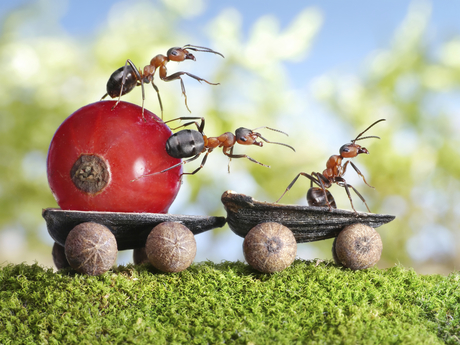One gene assigns both gender and caste in ants

Australian and German scientists have discovered that social insects such as ants, bees and wasps have a genetic ‘super switch’ that designates both their gender and their status as either a queen or worker. The results of their study have been published in the journal PLOS Genetics.
The so-called ‘doublesex transcription factor’ gene is found in many animals and is responsible for, say, why male flies have one less body segment than females. But according to the researchers, dual-function genes are usually limited to smaller genetic traits — not ones as significant as gender and caste.
Looking at ants, Australia’s Dr Luke Holman and colleagues from Universität Regensburg in Germany suspected that the doublesex gene might be responsible for more than just gender. They eventually determined that it was also the gene responsible for the differences between queen and worker ants.
“It looks like the gene has been co-opted to control whether an ant becomes either a queen or a worker, in addition to its normal function making boys or girls,” said Dr Holman, formerly of the Australian National University and currently at the University of Melbourne.
“Social insects needed to evolve a genetic switch that allowed juveniles to grow into a queen or a worker, so we think they repurposed one they already had.”
It’s well known that environmental factors play a key role in determining what a larva will become; for example, queen bees develop from larvae that are fed royal jelly. What was unknown was which genes were regulated by the environment, causing the developmental change.
“This really blew our minds, and we think it will represent a significant step in deciphering how one genome can give rise to such fundamentally different queen and worker body types,” said study co-author Jan Oettler.
The scientists believe the case can be applied to ants, bees, wasps and possibly termites (which have the doublesex gene, but a drastically different developmental process).
ADHD may be linked with an increased risk of dementia
An adult brain affected by attention deficit hyperactivity disorder (ADHD) presents modifications...
Placebos appear to reduce PMS symptoms
Women affected by premenstrual syndrome (PMS) appear to experience less intense and debilitating...
Medicinal cannabis linked to long-term health benefits
As scientists find a way to improve the effectiveness of CBD, a separate study shows that...




